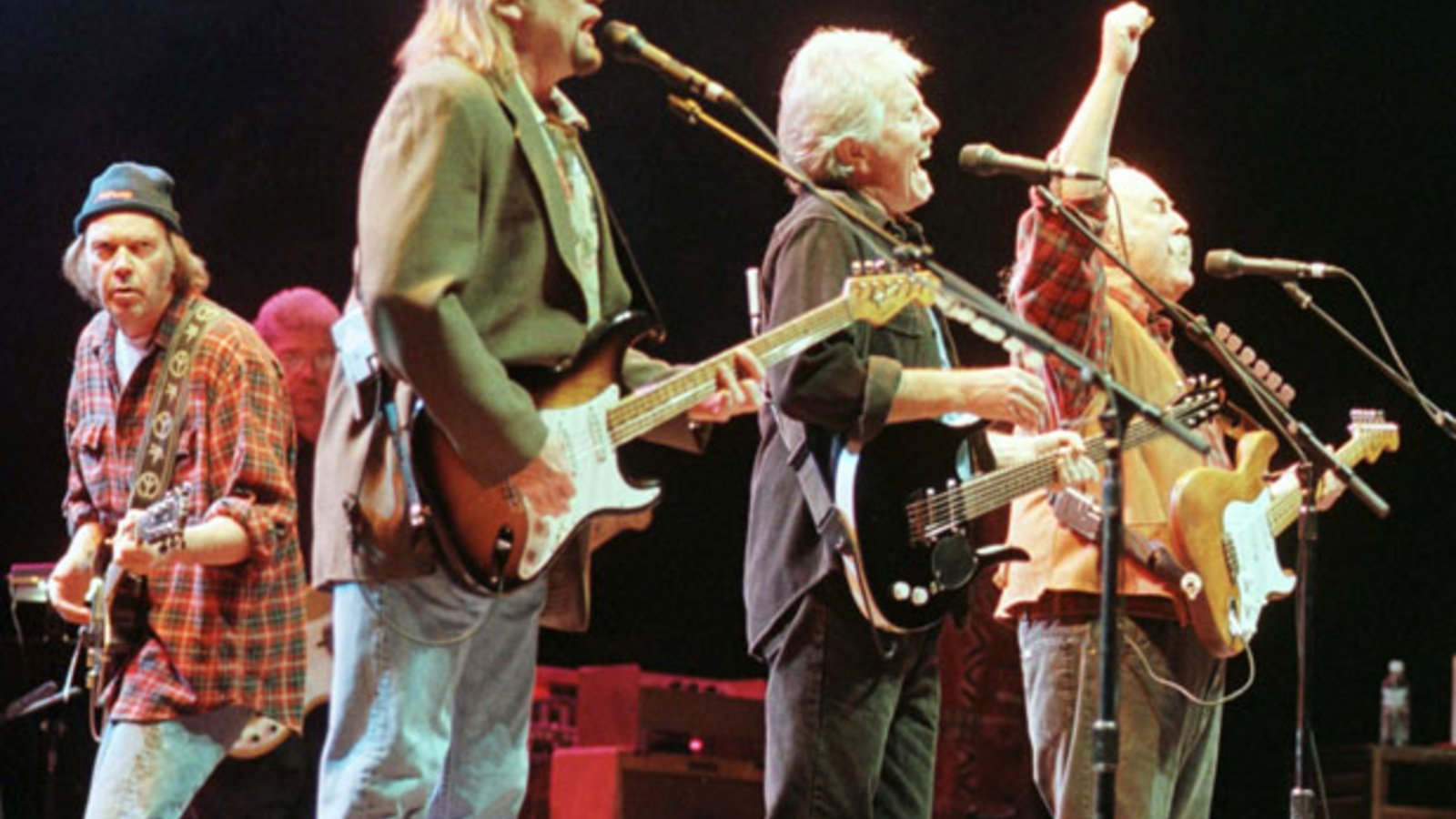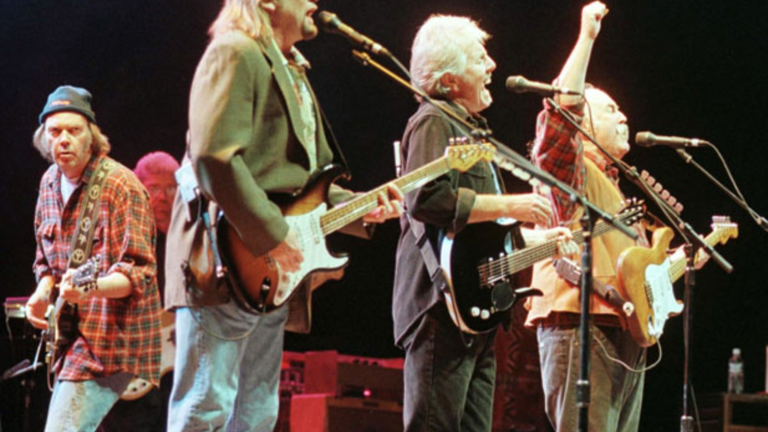
Great songwriters and musical artists can’t help but reflect the time in which they live. The Vietnam War era was a tumultuous time that provoked many potent emotions, which is why it’s no surprise that there are some fantastic classic rock songs that immediately come to mind when thinking of that period. Some of the songs on this list were written as a direct response to the war, while others ended up indirectly catching the tenor of the times. What’s fascinating is how these five songs that defined that era in so many ways still hold so much relevance today.
1. “Fortunate Son” by Creedence Clearwater Revival
John Fogerty seemed to be channeling the rage of every unfortunate soul who had no interest in fighting in Vietnam, yet ended up doing so anyway, when he penned this song. That rage also found its way into his vocal performance, with the rest of CCR following his lead by concocting an incendiary instrumental cocktail. Fogerty was inspired directly by the decisions being made by the powers that be about whose boots would actually be on the ground in Asia, compared to who’d be able to avoid it because of their upbringing. But “Fortunate Son” also managed to capture the age-old lament that the people making decisions to fight wars are rarely the ones out on the battlefield. As a result, it’s become an anti-war anthem that rises to the fore any time a new conflict arises.

2. “For What It’s Worth” by Buffalo Springfield
Stephen Stills was inspired to write this song by both the proceedings in Vietnam and by a specific incident he witnessed near his home in California, one where a peaceful youth gathering close to a local bar was attended by policemen in riot gear. The lyrics never mention Vietnam or even war in general. It’s more like the narrator is taking the temperature of the times, noting how everything seems to be spinning out of control and everybody is ready to jump into action, consequences be damned, rather than hearing each other out. He titled it “For What It’s Worth” in a bit of self-deprecation when it was presented to his publisher. But that title proved to be just right, because it was a thoughtful call for common sense that ended up proving how much a song can be worth in terms of the impact it can make.
It was a literal storm, not a figurative one, that caused Keith Richards to pick up his guitar one day and start writing “Gimme Shelter.” Once he and Mick Jagger got together to flesh it out, it started to take on a more expansive meaning, as the duo tried to make sense of how a generation focused on peace and love could be living in the shadow of such extreme violence. Beyond the lyrics, there’s something about the sound of the song, the way Richards’ guitar intro comes at you in a refracted, surreal manner, the piercing shrieks of backing singer Merry Clayton, and the unforgiving, cathartic crunch of the rhythm section, that seemed to make it a natural soundtrack to the images and video footage coming from the Vietnam War.

4. “We Gotta Get Out of This Place” by The Animals
Barry Mann and Cynthia Weil intended this song to be a Righteous Brothers vehicle. Who knows if the song would have become a Vietnam anthem with Bill Medley and Bobby Hatfield at the helm? We do know that The Animals got hold of it instead, and their unique blend of musical elements turned it into something that resonated with soldiers. Obviously, the sentiment of the chorus hit home, but the music added to it. That insinuating bass line and the funhouse organ produced an almost surreal effect. Then there were the vocals of Eric Burdon, so naturally potent that anyone listening might truly believe that the song could will an escape from present surroundings into existence. Mann and Weil were thinking of urban drudgery as the song’s metaphorical prison, but the Vietnam War re-contextualized it for all time.

5. “Sam Stone” by John Prine
Maybe this is a bit of a cheat, because plenty will probably say that Prine doesn’t quite fit in the classic rock genre. Nonetheless, no discussion about Vietnam-inspired material could ever be complete without his depiction of a vet returning home to far less than the hero’s welcome that soldiers coming back from previous wars experienced. Prine was drafted himself but lucked out with a non-combat assignment. He got to know many who did go overseas, and he saw how everything unraveled for them, even if they were lucky enough to survive the battlefield. The matter-of-fact way he sings the song contrasts with the harrowing details he provides. “Sam Stone” arrived well before the public groundswell of support for Vietnam vets was spurred on by other pop culture depictions of similar scenarios, proof of Prine’s foresight and insight in this matter.
